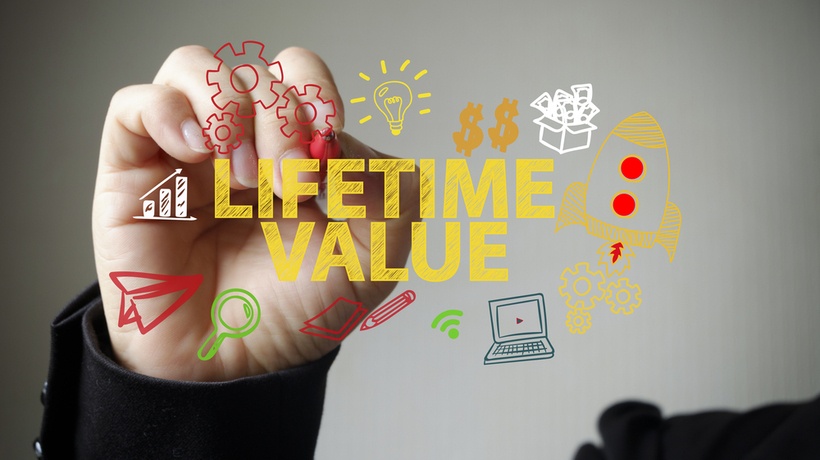How Τo Win Millennials’ Loyalty
I’m a Millennial. It’s not something I like to admit, given all the baggage that this generation has mostly earned over the years. Heck, more often than not, I’m the one putting on my grumpy next-door-neighbor pants and rolling my eyes at the behavior of some of my peers. The thing is, while I may not be the kind of guy who thinks it’s ok to check Facebook on company time and I definitely don’t keep a library of cat GIFs on hand, I do share many of the same basic expectations as my fellow Millennials regarding the ideal work environment. Your Millennials want to be your biggest cheerleaders. We want to wear your t-shirts, puff out our chests, and tell the whole world “Yea, I work there. You should totally apply”. As Boomers and Xers continue to reach retirement and leave you for good, you’re going to rely on the advocacy of this next cohort more than ever. You’ll have to know how to win Millennials’ loyalty; you’ll have to know what motivates us to seek you out and –later on– what plays into our decision to stay.
On behalf of Millennials everywhere, all I ask is that you hear us out.
1. Agility
Our take on culture is simple:
- We want to feel like we matter.
- We don’t want to fall into “the machine”.
Flexibility is like oxygen to our generation. If you try to stuff us in a box with rigid processes and mind-numbing bureaucracy, you’re going to suffocate us. Show us the end goal, cler it of unnecessary red tape, and let us find our own way there.
How many “that’s how we’ve always done it” procedures do you have in place right now? If your employees think of a better way to do it tomorrow, how hard is it for you to implement change of even the smallest magnitude?
Millennials can’t be expected to wait on snail’s-pace approval processes without getting frustrated – the world we live in is one of agility and adaptability. We work hard to stay ahead of change and we expect the same of our employers.
This isn’t a case of entry-level anarchists trying to bring down the system. It’s us pushing back at the inflexibility and impersonality of the status quo. But some of that comes down to miscommunication, and Millennials share the blame on this one. Sorry, leadership teams, but as much as you’ve stereotyped us, we’ve done the same to you. Which makes for a perfect segue into…
2. Leadership
Though it’s not a unique problem to Millennials, don’t lose sight of the fact that many people feel a natural inclination toward fear, insecurity, and discomfort in the presence of “the Boss”. This leads to those awkward conversations in which policies come “from Them” and new initiatives are followed because “that’s what They want”.
Don’t be a capital letter.
I don’t need a blue ribbon for participation. I just want proof that there is some kind of correlation between my performance and my reward, even if the latter manifests as nothing more than a “great job” every now and again (although it’s worth mentioning that performance-based pay plans are the best way to retain high performers).
If I’m doing something right, show me you noticed. If I’m doing something wrong, tell me immediately. Nothing motivates a Millennial more than honest feedback, both positive and critical. It’s the communication that matters.
Transparency is the other factor in play here. You can tell me what you want me to do all day long, but unless you take a moment to explain the “why” behind it, I’m going to disengage pretty quickly. I’m not trying to be difficult when I ask “Why?”, I’m just trying to validate the purpose in my work.
3. Development
We Millennials are not opposed to paying our dues, but that doesn’t mean we’re ok suffering through years of tedious repetition and mundane tasks without any light at the end of the tunnel. We want to cross-train. We want “next step” goals. We want a chance to pursue our own personal growth for the betterment of the entire organization.
When dealing with high performers from any age group, it’s important to show them up front that there’s no cap on what they can accomplish or how far they can take their current role. The biggest difference with Millennials is that we have more options. I’ll start updating my resume the minute someone tells me I’ve reached my ceiling.
To understand the growth mindset of our generation, all you have to do is look at the Millennial-led professional development networks that have sprung up on social media. Every day, I see examples of teachers, technologists, and even financial professionals who are not content with weekly staff meetings or the occasional professional development conference.
We’re talking about a burgeoning group of 20-somethings and 30-somethings who are putting in hours upon hours of their own time to solicit advice, write blogs, and collaborate with peers around the world, all because they want to be better at what they do. You can’t tell me Millennials aren’t willing to put in the work.
We understand that the organization comes first, and when the culture is right, we can be loyal to a fault. But we want this to go both ways; we just need to believe that the people we report to care about our development as much as we do.
4. Tech
For Millennials, the work we do and the tools we use to do it are intertwined. If I’m spending large parts of my day working in cutting-edge systems and I fail to be productive, that reflects poorly on me. If those same tasks take me twice as long to complete because I’m using clunky, outdated software (or worse yet – paper-based, manual processes), that reflects poorly on the organization.
Most Millennials (excepting those of us on the “old” end of the timeline) have never known what it’s like to stop and ask for directions at a gas station. We have the answer to every question we can think of right in our pockets (even if we don’t always know the right question to ask). How do you think we’re going to react if you ask us to fill out a paper timesheet or time-off request?
It’s not just timekeeping either. If your Millennials want to look at their check histories, time-off balances, or insurance information, do they have to check the HR and accounting phone tree or do you have an online portal for them to go to?
I use tools that I love every single day, and I’m not ashamed to admit that the technology absolutely has an impact on my job satisfaction. I once held a job where I was handed a thick binder of instructions and workarounds just to get me through my basic day-to-day operations. There’s a reason that last sentence is in the past tense.
My position affords me the opportunity to watch this scenario play out on a daily basis. We offer large-scale administrative technology solutions to municipalities and K12 school districts, many of which are coming off systems that look like something an ambitious 10th grader could create in a high school programming class. When we get these teams of public sector professionals up and running, it’s like their worlds have turned upside down.
The veteran employees in these organizations are amazed by every new efficiency they uncover. They tell stories about processes that used to take days (days!) to complete now getting knocked out before breakfast. The Millennials aren’t like that. Their responses mostly end up being variations of “It’s about time…”.
Millennials take technology for granted, and the only time it really stands out to us is when it’s in desperate need of an overhaul. This can be a glaring deficiency in our work environment.
So What?
I’ve traversed the entire spectrum, from employers who have instilled in me a sense of lifelong advocacy to those who left me beaten-down and jaded. I, like many trial-and-error career adventurers before me, have a good sense of what works and what doesn’t in leadership and workplace culture.
If you’ve been in the workforce for more than a decade, you’ve seen firsthand the generational gap in areas like retention, job satisfaction, and loyalty. As your longest-tenured employees edge toward retirement with 20, 30, or even 40 years under their belts, you might find yourself looking around, wondering how much of the younger crop is going to stick around that long.
Have entitlement and job-hopping replaced stick-to-itiveness and loyalty as core workforce values? Well, no… But you won’t see us at our best until the culture starts to catch up with the workforce. Your Millennials can't be the ones to do all the changing – the only question is, will you meet us halfway?
For the next couple of decades, you’ll need your Millennials every bit as much as they need you. Let's make sure the workplace culture is one we can all live with...
... After all, it's only a matter of time before the next generation comes along and ruins it for everyone.
If building a high-performing culture is high on your radar, the hiring process is a good place to start.









